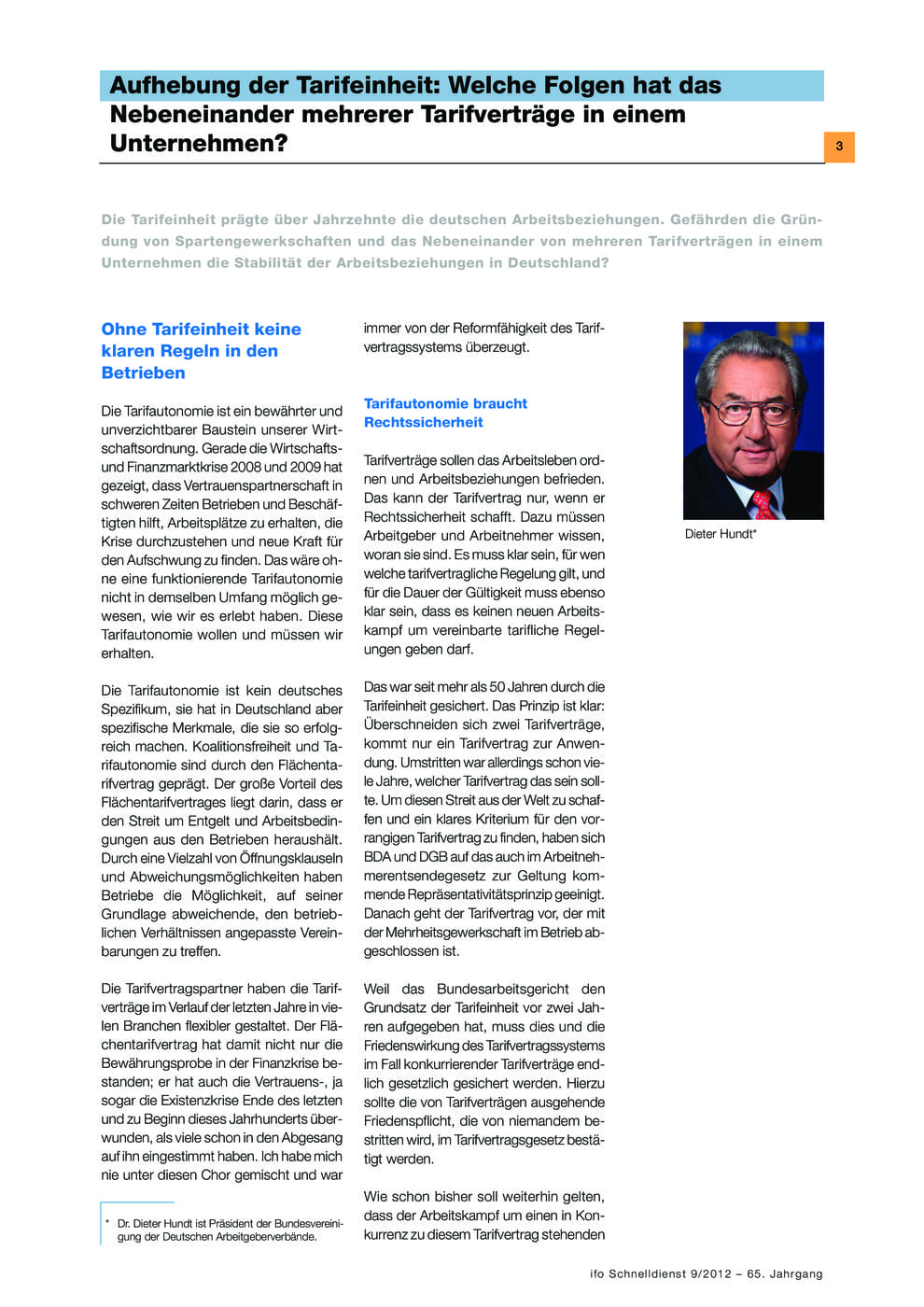Removal of Tariff Uniformity: What Are the Consequences of Several Collective Labour Agreements Co-existing in a Company?
ifo Institut, München, 2012
ifo Schnelldienst, 2012, 65, Nr. 09, 03-11

Does the establishment of segment unions and the side-by-side existence of several collective labour agreements in a company endanger the stability of working relationships in Germany? Dieter Hundt, President of the Confederation of German Employers' Associations, is convinced that the obligatory peace period will be endangered in all branches without collective labour agreements. For without uniform tariffs strikes are possible, despite the existence of labour agreements for all employees in the company in question. This would mean that segment strikes would damage the entire company and the majority of staff, while the reliability of German labour relations to date would be lost. According to Hagen Lesch, Cologne Institute for Economic Research, the economic implications of competition among unions depends on whether unions organise interchangeable or complementary employee groups. Segment unions are powerful when they represent complementary groups. In such cases a single group can completely disrupt the entire production process. Moreover, the tariff negotiations by segment unions are often highly conflictual. Should this conflict-orientation continue, the climate bwteen the tariff parties and the unions will deteriorate.